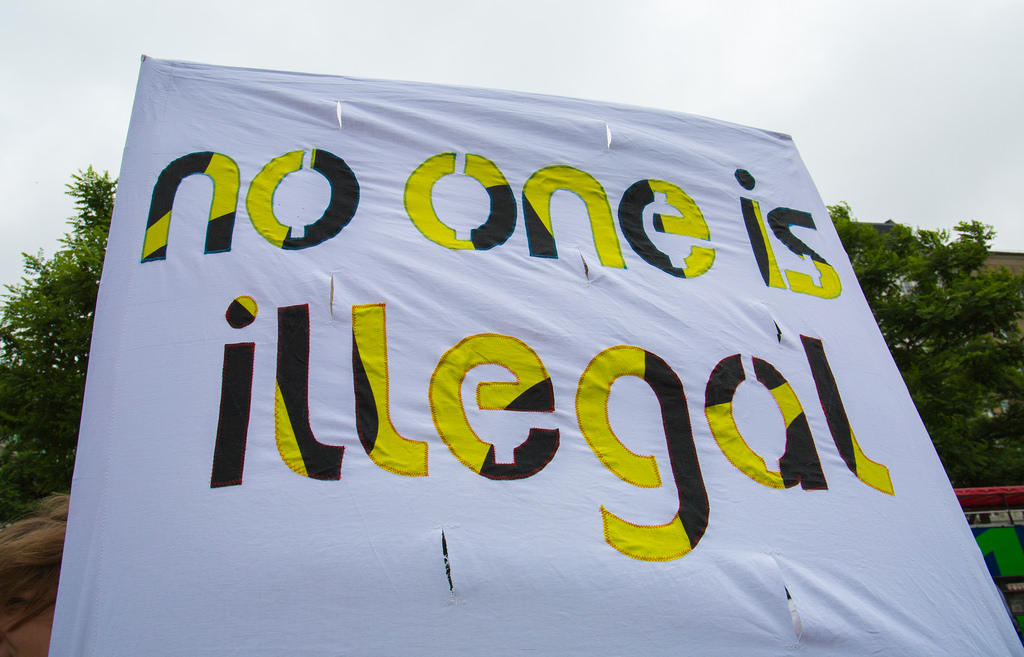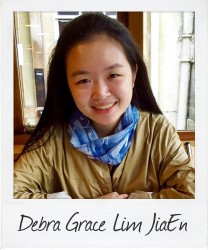“The limits of rights granted to refugees”
July 18Tutoring a refugee student gave Debra Grace Lim Jia-En, 17, a Commonwealth Correspondent from Malaysia, opportunity to learn about gaps in the rights and protections that are offered when people are forced to flee war or disaster.
It was at a local NGO that I first met Sayyaf (not his real name), a 10-year-old Rohingya refugee who lived with his family at a refugee shelter in Kuala Lumpur.
Sayyaf was a bright boy with big dreams. He often told me that he wanted to design cars when he grew up and worked hard to improve his English and Maths during our weekly tutorial sessions.
However, all the education he could procure was the weekly sessions when volunteers would come to the refugee centre to teach. Sayyaf could not attend a local school, which was greatly hindering the progress of his education. This surprised me initially, as the Malaysian government ensures that public schools are free of charge so the cost of fees obviously was not an issue. It was only then that I came to know that the right to education as enshrined in the Federal Constitution makes the provision that such a liberty is only ensured for Malaysian citizens, not for refugees.
Without this essential right and little likelihood of resettlement, it was evident that Sayyaf’s future was uncertain at best. Without an education, his future prospects would be severely limited.
Unfortunately, Sayyaf’s predicament is not an unusual one. Amnesty International defines refugees as ‘persons who cannot return to their own country because they would be at real risk of persecution or other serious human rights violations’. The issue of refugee rights has come to the forefront of international policy since the recent emergence of the global refugee crisis that sparked much attention and controversy internationally. According to the UNHCR, nearly 20 people are forcibly displaced every minute as a result of conflict or persecution. As of 19th June 2017, a record 65.6 million people — of which 22.5 million are registered refugees — have been displaced from their homes, mostly as a result of war in their native lands.
Possibly the most famous legal document that deals with the status and rights of refugees is the 1951 Refugee Convention drawn up by the United Nations. Potentially the most important right ensured under the 1951 Convention is a refugee’s right to safety from being returned to the dangers they have fled, otherwise known as the principle of non-refoulement. Under the convention, many other rights are stipulated: the right to freedom of movement, unity of family, access to welfare services, the right to housing, work and access to justice.
Despite the international presence of the 1951 Refugee Convention and its subsequent 1967 Protocol, many nations — Malaysia included — are not signatories of either document. Such nations are not obliged to abide by the conditions set out in the convention. Even where countries have signed the Convention, the United Nations is unable to ensure that the terms of the Convention are enforced in the respective nations. It is likely that the basic human rights of refugees are easily compromised regardless of the convention as a result of restrictive national refugee policies such as encampment policies.
More urgently, there is a critical lack of legislation in regard to refugees in many nations. For instance, in Malaysia there is no legal framework or administrative procedure which deals with refugees. Under the law, refugees simply do not exist and thus can be treated as illegal immigrants. Such a lack allows refugees to be subjected to arbitrary detention, extortion and no protection before the law.
One might be able to put forward the view that refugee rights continue to remain so limited is due in part to the negative narrative surrounding them. According to the Pew Research Center, a median of 59 per cent of Europeans are concerned that refugees will increase the likelihood of domestic terrorism. Many believe that they will drain the economy by living off government benefits and taking employment away from the local people.
There is evidence, however, to prove otherwise. In the 1950s after the implementation of Communism, thousands of Chinese fled to Hong Kong, vastly contributing to the state’s booming economic success. According to a paper by the National Bureau of Economic Research issued in June 2017, by the time refugees who entered the U.S.A. as adults have been there for 20 years, they will have paid, on average, $21,000 more in taxes than they received in benefits over that time span. In Utica, New York, refugees have become active members of the workforce, effectively stemming its economic decline.
Above all, it is crucial to remember that refugees are, in effect, the world’s most vulnerable people and are classified as such because they have been persecuted or suffered serious human rights violations. They are no less human than we are and deserve to be treated with respect, dignity and have their rights upheld as we all do. All children dream just as Sayyaf does, and refugee children like him all deserve to have the instruments to carve out a future for themselves. Arguably, our common humanity should induce us to do at least that much.
photo credit: Rasande Tyskar Demonstration Hamburg Refugee Rights – No G20 – 24.06.2017 Around 2.000 refugees and supporters took to the streets of Hamburg in advance of the G20 Summit. via photopin (license)
……………………………………………………………………………………………………………………………………………………………
About me: Hi! My name’s Debra and I’m from Malaysia. I aspire to be a lawyer one day, and I have a special interest in public policy and its implementation, social justice and international trade.
Currently, I’m a Lower Sixth student at Kolej Tuanku Jaa’far, studying for my A levels. When I’m not reading, writing or volunteering, I also enjoy the performing arts, playing music, Model United Nations conferences and travelling.
………………………………………………………………………………………………………………………………………………………………
Opinions expressed in this article are those of the author and do not necessarily represent the views of the Commonwealth Youth Programme. Articles are published in a spirit of dialogue, respect and understanding. If you disagree, why not submit a response?
To learn more about becoming a Commonwealth Correspondent please visit: http://www.yourcommonwealth.org/submit-articles/
………………………………………………………………………………………………





